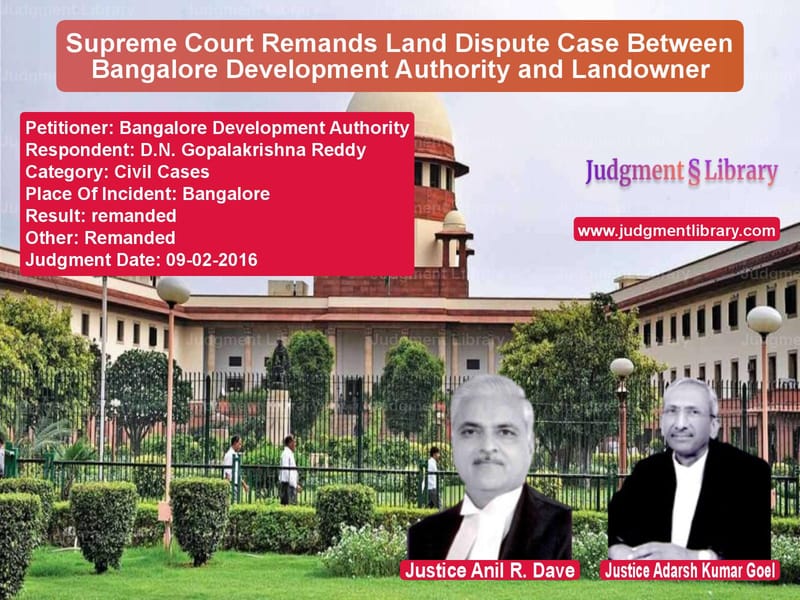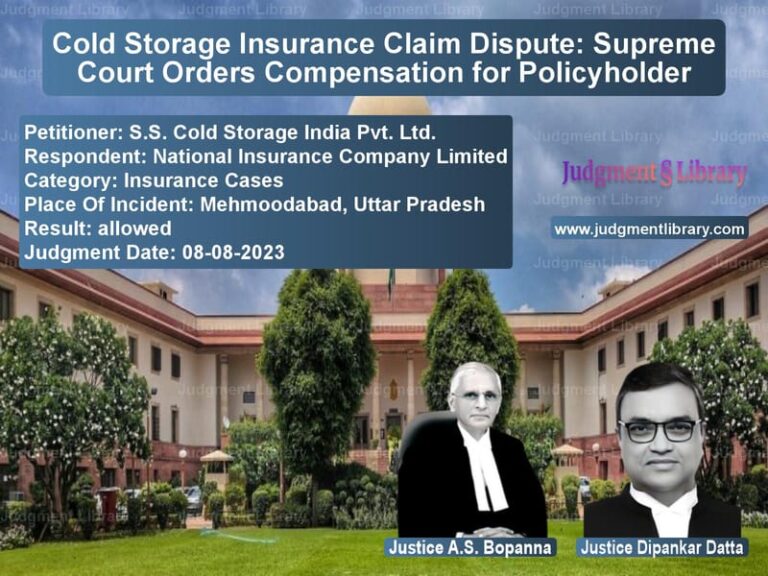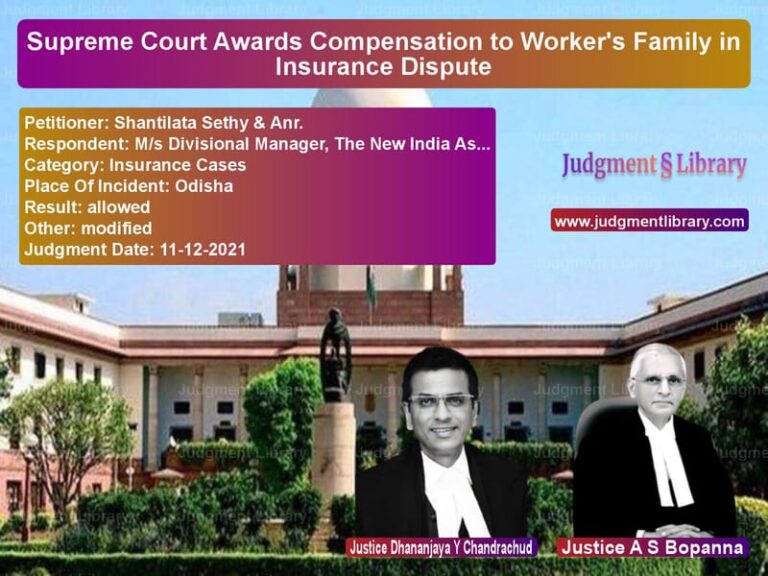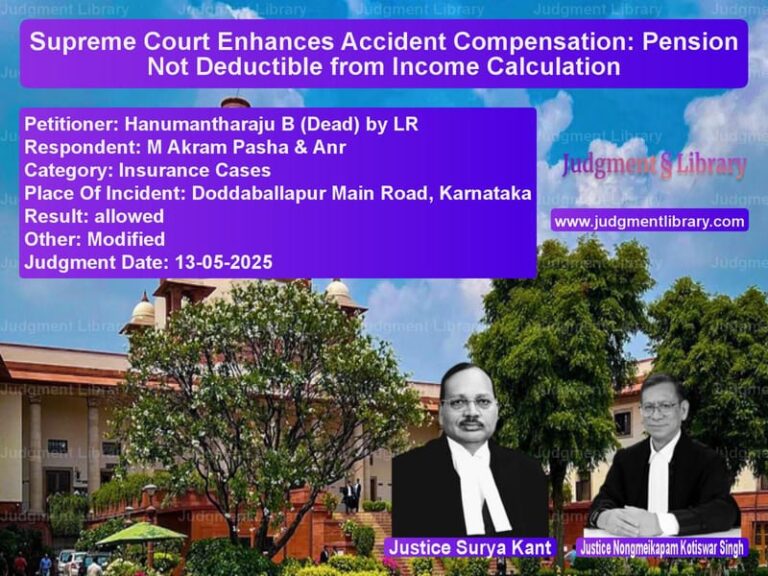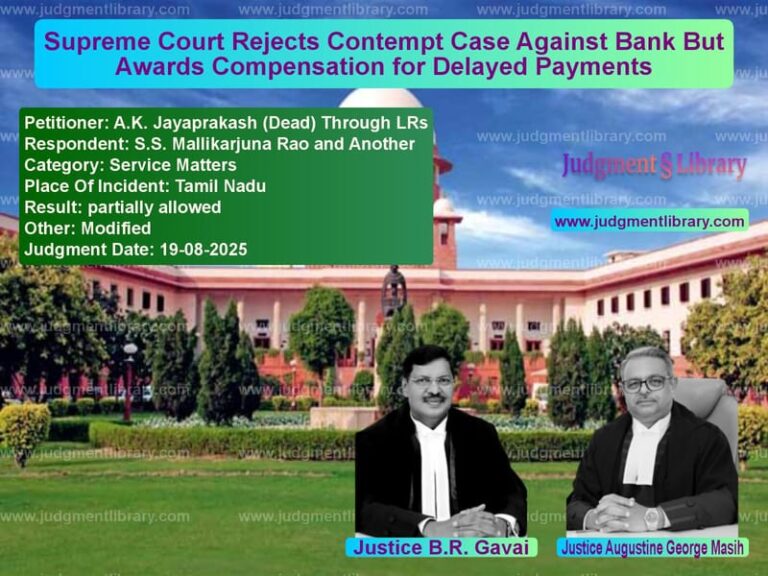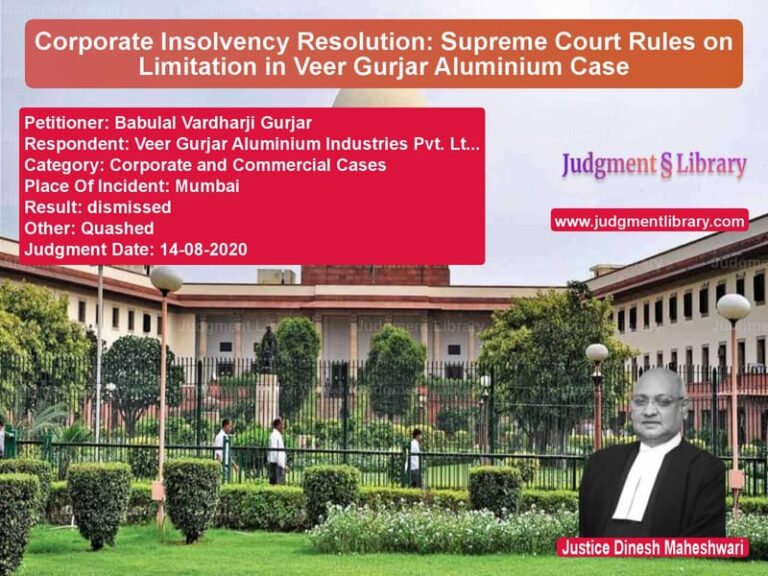Supreme Court Remands Land Dispute Case Between Bangalore Development Authority and Landowner
The Supreme Court of India, in Bangalore Development Authority vs. D.N. Gopalakrishna Reddy, ruled on a complex land dispute involving compensation and possession rights. The case revolved around whether the possession of a portion of land had been taken by the Bangalore Development Authority (BDA) and whether the compensation for the entire land had been appropriately paid. Given the uncertainties surrounding the case, the Supreme Court decided to remit the matter to the High Court for fresh adjudication.
Background of the Case
The dispute involved a plot of land measuring 40’ x 60’ on which a constructed house existed. However, issues arose concerning the remaining land, as there was a lack of clarity regarding whether the possession had been legally taken by the BDA and whether full compensation had been disbursed. The High Court had previously ruled on the matter, leading to an appeal before the Supreme Court.
Petitioner’s (Bangalore Development Authority) Arguments:
- The BDA contended that it had legally acquired the land and that due compensation had been paid to the respondent.
- It argued that the previous judgment failed to account for the legal implications of land acquisition and possession.
- The authority sought a ruling that would confirm its rightful ownership and possession of the land.
Respondent’s (D.N. Gopalakrishna Reddy) Arguments:
- The respondent challenged the claim that full compensation had been paid.
- They argued that the BDA had not legally taken possession of the remaining land.
- The respondent sought a ruling that would clarify their rights over the disputed land.
Supreme Court’s Judgment:
- The Court recognized the ongoing dispute regarding land possession and compensation.
- The judgment stated, “So far as the remaining land is concerned, there appears to be some dispute whether possession of the said remaining land has been taken by the appellant and as to whether compensation in respect of the entire land is paid and its legal effect.”
- Given these uncertainties, the Court decided to set aside the High Court’s judgment and remit the case back for fresh adjudication.
- The High Court was directed to hear both parties, consider the current status of the land, and decide the matter afresh based on the prevailing legal framework.
- The Court ordered both parties to appear before the High Court on March 14, 2016, for the scheduling of final hearings.
- It also directed the parties to maintain status quo until the High Court delivered its fresh ruling.
Key Takeaways
- The judgment highlights the importance of clear legal procedures in land acquisition cases.
- Compensation and possession disputes must be conclusively resolved before finalizing land acquisition claims.
- The Supreme Court reaffirmed the need for the High Court to conduct a thorough examination of factual and legal aspects before making a ruling.
The judgment was delivered by Justice Anil R. Dave and Justice Adarsh Kumar Goel on February 9, 2016.
This decision ensures that the High Court fully examines the facts before making a final determination on land possession and compensation rights.
Don’t miss out on the full details! Download the complete judgment in PDF format below and gain valuable insights instantly!
Download Judgment: Bangalore Developmen vs D.N. Gopalakrishna R Supreme Court of India Judgment Dated 09-02-2016-1741852900867.pdf
Direct Downlaod Judgment: Direct downlaod this Judgment
See all petitions in Property Disputes
See all petitions in Damages and Compensation
See all petitions in Landlord-Tenant Disputes
See all petitions in Judgment by Anil R. Dave
See all petitions in Judgment by Adarsh Kumar Goel
See all petitions in Remanded
See all petitions in Remanded
See all petitions in supreme court of India judgments February 2016
See all petitions in 2016 judgments
See all posts in Civil Cases Category
See all allowed petitions in Civil Cases Category
See all Dismissed petitions in Civil Cases Category
See all partially allowed petitions in Civil Cases Category

